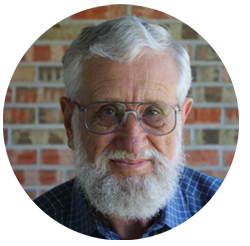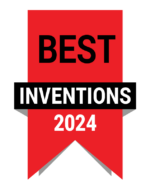
When John Wilson, PhD, decided to leave his position as a research microbiologist at the U.S. Environmental Protection Agency and start his own environmental services firm, he chose a name for his company that reflected his spirited commitment to doing things the right way. “I retired from the U.S. EPA in April of 2014”, says Dr. Wilson. “That same month, my wife Barbara and I created Scissortail Environmental Solutions, LLC. Our company is named after the state bird of Oklahoma because the Scissortail Flycatcher is active and alert as it goes about its business, and we try to be the same in all our work.” As the Principal Scientist of Scissortail Environmental Solutions, Wilson, a distinguished REGENESIS Scientific Advisory Board (SAB) member, has transferred a deep reservoir of environmental remediation experience from a highly respected government agency to his own business, creating a comprehensive suite of consulting services for both industry and government. He shares, “Our work focuses on the natural attenuation and active bioremediation of organic contamination in groundwater. The importance of groundwater to economic development and the quality of life in the US will continue to grow as the demand for groundwater increases. We must do everything we can to protect and restore the quality of groundwater.”
Pioneering Remediation Research at the US EPA
Prior to his recent success with Scissortail Environmental Solutions, Wilson was primarily known for his career with the U.S. Environmental Protection Agency, and his work at the Robert S. Kerr Environmental Research Center in Ada, OK. He continues, “From 1979 until I left the EPA in 2014, I worked on bioremediation of chlorinated solvents, and natural attenuation of chlorinated solvents, petroleum hydrocarbons, and fuel components such as MTBE and EDB. At the EPA I helped develop the logic used by the U.S. EPA to implement Monitored Natural Attenuation and to evaluate vapor intrusion from fuel spills.” Now, as the Principal Scientist of Scissortail Environmental Solutions, Wilson divides his time between reviewing the work of others and providing recommendations for improvements and his own applied research. He develops ideas, writes proposals, and does some experimental work, in addition to writing reports. He shares, “I enjoy working with other people to solve problems, and it helps that I like the people I work with. I also have a passion for the work we do.” His career path in environmental remediation originated from an interest in hydrology and from an initial assignment with the EPA that involved exploring the microbiology of groundwater. He continues, “I was originally hired by research managers at the U.S. EPA Office of Research and Development to evaluate whether the aquifers of the United States contained bacteria, and the impact those bacteria might have on groundwater quality. At the time (1978), most engineers and hydrologist thought the deeper subsurface was essentially sterile. I did find bacteria in aquifers and they were doing quite a bit to destroy organic contaminants like TCE and fuel hydrocarbons.”
A History of Accomplishments and Contributions to the Remediation Industry
In addition to his three plus decades of professional experience with the U.S. Environmental Protection Agency, Wilson earned a B.S. in Biology from Baylor University, a M.A. in Microbiology from the University of California, Berkeley, and his Ph.D. in Microbiology from Cornell University. He served an Adjunct Appointment to Rice University from 1990 to 2000, has written more than 80 published journal articles on a wide range of environmentally-focused topics, and has served as a Member of the Editorial Board of Bioremediation Journal. He is currently an Associate Editor of Ground Water Monitoring & Remediation. To stay abreast of trends and new technologies, Wilson often lectures on industry-related topics. “I learn a lot getting ready to teach. In the past I have provided continuing education through the Battelle Conferences and the National Groundwater Association.” Currently, Wilson serves on the REGENESIS Science Advisory Board. He continues, “As an Advisory Board member my job is to make sure REGENESIS doesn’t miss anything as far as the science of their products goes.” He also appreciates the professional relationship that he and Scissortail Environmental Solutions have with REGENESIS. “I enjoy working with them because they combine a strong technical background with extensive practical experience. They understand what I tell them, but they also know enough to evaluate my recommendations against their own unique experience base.” When it comes to applying specific REGENESIS solutions and products to his work, PlumeStop® tops his list. He shares, “If we can learn when to use PlumeStop, where to use it, and how to use it correctly, we can bring a lot of contaminated sites to closure.”
Residing in Ada, Oklahoma, where his firm’s offices are located, Wilson and his wife, Barbara, enjoy the familiarity and pace of a town they have come to know and appreciate through the years. “We are surrounded by good people,” he shares. “We have known most of the people here for a long time.” Outside of work, a favorite hobby includes rock collecting. He continues, “If I can I’ll bring back a rock from each field site I work. When I take road trips, I like to look at the landforms as we drive by and imagine how they came to be. I have a shelf full of the Roadside Geology series of books that I enjoy reading from time to time.” He also volunteers with the local Boy Scout program, an association that he’s enjoyed in Ada for more than 30 years. He continues, “I am on the local District Committee for Boy Scouts, and work with Troop 4 here in Ada. In fact, Barbara and I teach the Sustainability and Environmental Science Merit Badges. All three of our sons are Eagle Scouts.” In addition, he is active in the Rotary Club, and is a past president of his local club.
A Challenging and Improving Industry
When asked about the most demanding aspect of his work, Wilson points out the importance of good writing in his work. He shares, “Writing is hard for me, and it takes me a lot of time and effort to produce something I am ready to send to the client. Early in my career there were no word processors or spreadsheets. I banged out my reports on a manual typewriter, working from handwritten notes of journals that I had read in a library. I drew up figures for journal articles in ink on a drafting table. But today, the modern tools allow me to spend more time actually thinking about what the data means, instead of being involved in the immediate process of producing the manuscript.” And when asked how he’s seen the industry change over the years, he points to an added emphasis on procedures, safety, and performance compared to what he experienced early in his career. He concludes, “There is more process in the process, and much more documentation of procedures. There are also more forms to complete and permissions that must be granted before we do anything. And there is a much greater emphasis on safety, and on the performance and reliability of the systems that we install. Essentially, our industry does a much better of job now than it did thirty years ago.”
REGENESIS is proud to have John Wilson, PhD and Principal Scientist of Scissortail Environmental Solutions, LLC, as a valued partner in environmental remediation, and appreciates his vast expertise and ongoing efforts in providing successful remediation outcomes for REGENESIS and its clients.

 Americas
Americas Europe
Europe Français
Français Deutsch
Deutsch Italiano
Italiano Español
Español



